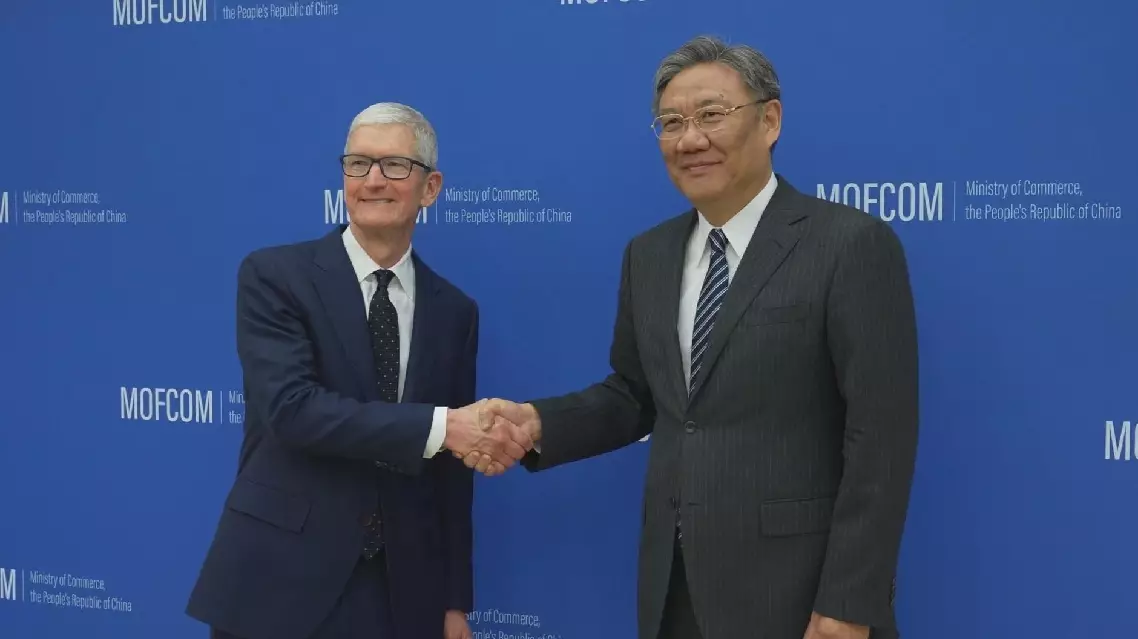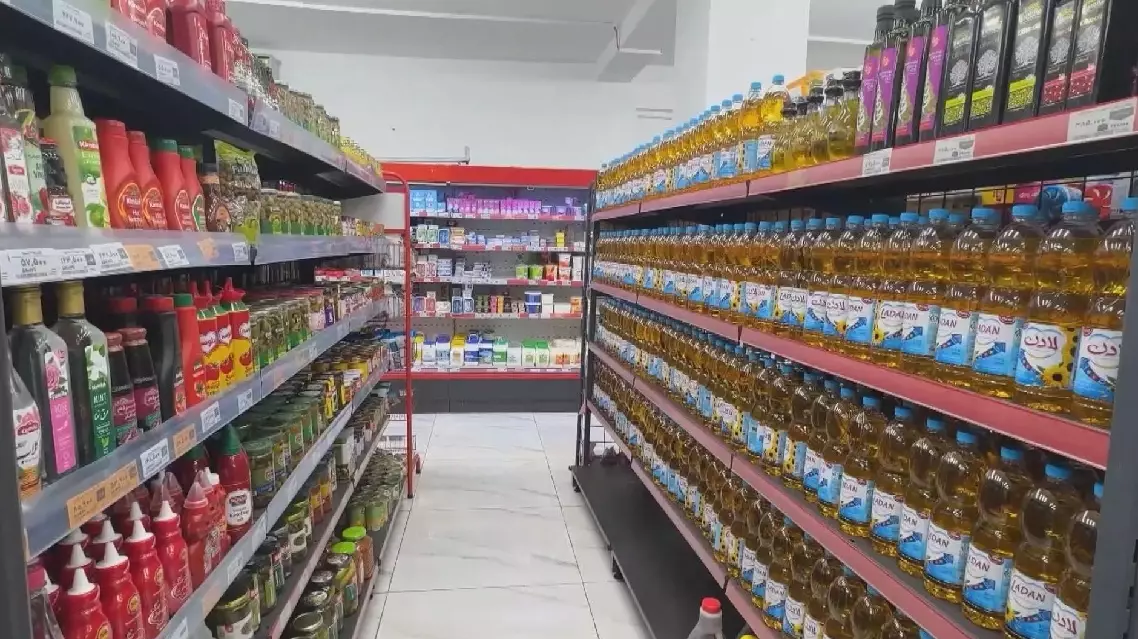Chinese Commerce Minister Wang Wentao met with visiting Apple CEO Tim Cook in Beijing on Monday, according to a statement released by the Ministry of Commerce.
During the meeting, the two sides exchanged views on topics including Apple's business development in China, as well as China-U.S. economic and trade relations.
Wang noted that the Chinese economy has demonstrated strong resilience and vitality, becoming a fertile ground for innovation-driven development.
China remains unwavering in its commitment to expanding its opening-up to the outside world, providing foreign-funded enterprises with a level playing field, and supporting their products' equal access to consumption-boosting policies such as trade-in programs, Wang said.
"Today, I appreciate this opportunity to have further in-depth and pragmatic conversations with you," Wang said, expressing the hope that Apple will expand its investment in China and integrate deeply into the Chinese market to share in the opportunities of the market's development.
Wang emphasized that trade wars produce no winners and protectionism offers no way forward. As China and the U.S. are the world's two largest economies, strengthened China-U.S. economic and trade cooperation aligns with economic principles, whereas decoupling and supply chain disruptions would harm all parties' interests, he said.
Noting that the unilateral tariff increases and other restrictive measures adopted by the U.S. side have created uncertainties for the world economy, he said that China stands ready to work with the United States to create a more stable policy environment for businesses through equal dialogue.
"It's great to be among friends. As you know, we've been in China more than 30 years, and where there are companies that have been here longer than that clearly, I don't think that any have produced as much of a win-win relationship," Cook said.
Apple will continue to increase investment in sectors such as supply chains, research and development, and social responsibility in China, aiming to support the country's high-quality development, Cook said.
Cook emphasized that the company stands ready to play an active role in promoting stable, healthy development of China-U.S. economic and trade relations.

Chinese commerce minister meets Apple CEO Tim Cook
The Iranian government is focusing on public concerns and maintaining stable supplies of essential goods amid recent protests, Iranian President Masoud Pezeshkian said in a televised interview on Sunday.
In the city of Karaj, northwest of the capital Tehran, daily life has largely continued as normal. A video filmed by a local resident on Sunday shows food stores open and grocery shelves fully stocked.
"This is the block near my home, and there are some food stores here. Daily life continues here. Last night we did not see many protests in Karaj. Right now the city is very safe. This is a grocery store close to my home. All the food is available; nothing is in shortage. Here are noodles and different types of beans. Here are dairy products, cheese, and yogurt. I also checked other grocery stores and didn't see any shortages. Everything is available," said local resident Ali Reza.
Iranian officials have described recent disturbances as acts orchestrated by the "enemy," including some carried out by well-trained and armed "terrorists." The incidents have caused casualties among security personnel and civilians, as well as property damage.
The Secretary of Iran's Supreme National Security Council Ali Larijani has directed authorities to severely punish the "terrorists."
Meanwhile, Iran's police chief Ahmad-Reza Radan said on Sunday that the police had raised alert levels and arrested several leaders of the troublemakers during the operations on Saturday.
President Pezeshkian noted in the interview that the normal demands of the Iranian people are reasonable and justified, but they must realize that triggering riots and carrying out terrorist acts are the enemy's attempts to undermine the country. He urged the public to remain vigilant.
Also on Sunday, Iranian Parliament Speaker Mohammad Baqer Qalibaf warned that Tehran would regard U.S. and Israeli bases and facilities in the Middle East as "legitimate targets" if Washington takes military action against Iran. His remarks followed media reports saying U.S. President Donald Trump is "seriously considering authorizing a strike" against Iran.
Iranian state media reported that at least 109 members of Iran's security forces have been killed in clashes since the protests began 14 days ago. Meanwhile, human rights groups based outside the country said the number of protesters killed has exceeded 200, though the figure could not be independently verified.
The protests initially erupted over a sharp depreciation of the rial and sweeping subsidy reforms. Iranian authorities have blamed the unrest on foreign-linked agents and sanctions imposed by the United States.

Iranian president says government focusing on ensuring supplies amid protests










